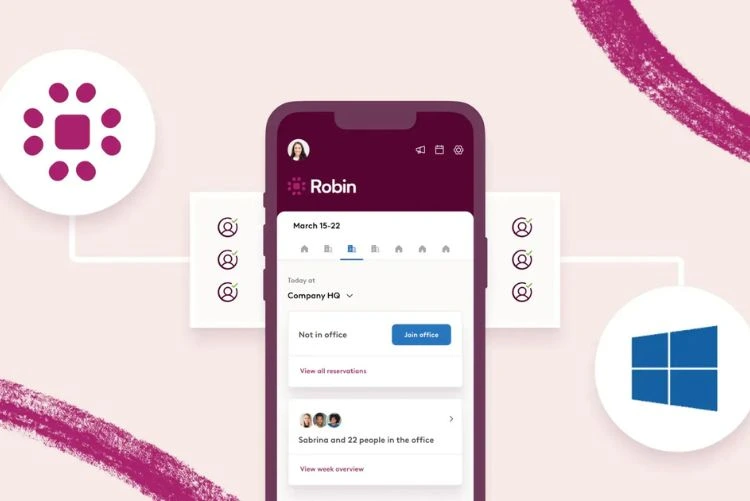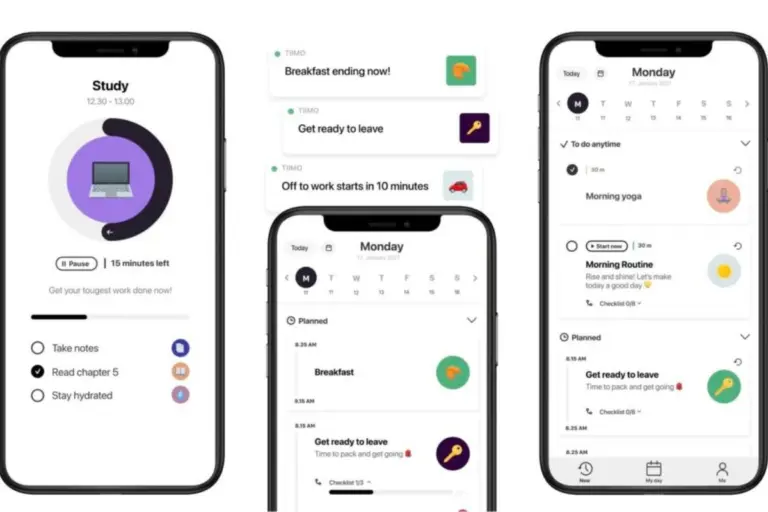Robyn App – Actual Use of This App and How to Use It Greatly

If you’ve been hearing about Robyn lately and wondering what exactly it does, here’s a simple summary: Robyn is an emotionally intelligent AI companion app, created not simply to chat but to help you reflect, grow, and spot patterns in your thoughts, moods, and conversations.
Built by a former physician and a team trained in neuroscience and memory research, Robyn isn’t intended to replace therapy but rather to serve as a mirror to your inner world.
In everyday terms: you talk to the app about things on your mind (even late-night thoughts), you record voice notes or chats, and you reflect on your day. Robyn remembers previous conversations and helps you notice patterns you may not have seen. It’s like having a thoughtful, nonjudgmental listener who’s also insightful.
How People Actually Use Robyn—Real Use Cases
Here are some of the core ways users are leveraging Robyn:
1. Daily Reflection & Journaling
Instead of writing in a physical journal, many open Robyn at the end of the day and talk or type about what happened: how they felt, what triggered them, and what stuck in their mind. Robyn takes that and later shows you, “This thought keeps repeating,” or “You get most triggered when X happens.” This kind of insight helps you become more aware of emotional habits.
2. Tracking Emotional Patterns
Over time, the app builds up what Robyn calls your “emotional DNA,” or patterns: e.g., you might habitually avoid conflict, or you react strongly when under stress. Robyn highlights these patterns so you can lean into them or change them.
3. Decision Support & Relationship Insights
Some users appreciate that Robyn doesn’t just listen; it offers guidance. For example, you talk about a decision (“Should I move cities?”), Robyn asks questions, highlights previous patterns (“You always feel regret when you skip growth opportunities”), and helps you choose intentionally. A user said, “The app actually helped me show up better in my relationship.”
4. Safe Space Late-Night or Private Thoughts
Unlike telling a friend repeatedly, Robyn is available anytime. Especially when you have thoughts you don’t want to unload on others, this app serves as a private space. It’s built with encryption and privacy as key elements.
Key Features and What Makes Them Useful
Below are important features of Robyn and why they matter.
-
Memory & Pattern Recognition: Unlike many chatbots that “reset,” Robyn retains memory of your previous sessions and uses that to surface insights. That linkage is what gives it depth.
-
Moods + Voice Notes + Chats: You can type, speak, and upload voice notes and even photos, and then Robyn processes all that to show you trends. If you often mention “stress at work,” Robyn will bring that up.
-
Emotional DNA + Attachment Styles: Robyn identifies your emotional fingerprint—how you tend to react and what environment triggers you. That’s rare in apps like this.
-
Privacy & Safe Use: The app is explicit that it’s not a therapy replacement but rather a supportive companion. There are guardrails. If you talk about self-harm, it gives you mental health resources.
How to Use Robyn Effectively (Step-by-Step)
To get real value from Robyn, don’t just install and forget. Use it thoughtfully:
-
Install & Onboard Carefully
After installing (it’s available on iOS), you’ll go through onboarding: Robyn will ask you about your goals, how you respond to challenges, and what tone you prefer. It’s worth spending 10-15 minutes here. -
Set a Daily Check-In Routine
Every day (or at least 4-5 times a week), open the app and log something: your mood, a thing you’re proud of, or a challenge. Even 5 minutes is enough.
For example: “Today I felt uneasy in the meeting; I kept quiet when I should’ve spoken up.” Robyn will catch that pattern over time. -
Use Voice Notes or Chat Freely
If you prefer speaking rather than typing, use voice notes. Often, spoken thoughts reveal more than typed ones. Robyn supports voice and chats. -
Review Insights Regularly
Once or twice a week, go into the “Insights” or “Mirror Cards” section (depends on version) and review what Robyn picked up: e.g., “You felt happiest when you did X,” “You avoid giving feedback in relationships.” Use that to reflect. -
Take Action From Patterns
The app isn’t just for seeing patterns; it’s for change. If Robyn shows “you repeatedly agree when you want to say no,” next week make one decision where you say “no” and see how you feel. Report it. Gradual changes matter. -
Respect Privacy & Boundaries
Remember: this is a support tool, not a medical professional. For serious mental health issues, always consult a qualified provider. Robyn gives referrals where needed.
Also Read:
- Microsoft’s First AI Image Generator: Features, Power, and What It Can Do
- Why Apple Says Goodbye to the Clips App After 8 Years
Who Benefits Most From Robyn
-
People who reflect and want to grow emotionally.
-
Those who journal but prefer speaking or chats instead of writing.
-
Individuals who feel they keep repeating the same patterns (e.g., relationships, work stress) and want clarity.
-
Users who value privacy and want a non-judgmental space.
Things to Keep in Mind (and some limitations)
-
While Robyn is impressive, it doesn’t replace therapy or professional help. Anyone dealing with severe anxiety, depression, or trauma should see a clinician.
-
Because it relies on users providing truthful input, the accuracy of insights depends on how honest and consistent you are.
-
Some features may be locked behind a subscription (check current pricing).
-
It works best when used regularly; sporadic use will yield fewer patterns.
The Big Value Proposition
In essence, Robyn offers emotional self-coaching via an AI companion. It’s like this: you talk, the app listens, then it reflects things to you in meaningful ways you might’ve missed. Over time, you start seeing the “why” behind your thoughts, habits, and decisions. If you’ve ever thought, “Why do I always feel this way after work?” or “Why do I keep reacting the same way in relationships?”, Robyn helps you uncover that.
Given the current digital era, where people often feel disconnected despite being constantly “online,” Robyn taps into a deeper need: to feel seen and understood. That alone makes it stand out.
Should You Use Robyn—and How to Maximize It
Yes, it’s worth trying, especially if you’re curious about emotional growth and want a tool that supports you in a different way. To maximize it:
-
Commit to a simple routine (5-10 minutes a day).
-
Be honest with your entries.
-
Review insights and intentionally act on one pattern each week.
-
Use it as a supplement, not exclusively for your self-care or mental health journey.
Used well, Robyn can help you understand yourself better, navigate emotions more clearly, and make decisions more consciously. In short, it’s not just another chat app; it’s a tool for growth.



![8 Splitting Apps like Splitwise & SplitWise Alternatives [2024] 8 Splitting Apps like Splitwise & SplitWise Alternatives](https://mediatalky.com/wp-content/uploads/2024/03/Add-a-subheading-5-768x432.jpg)


![7 Most Popular Unblocked Games [2024] 7 Most Popular Unblocked Games](https://mediatalky.com/wp-content/uploads/2024/03/Unblocked.jpg)